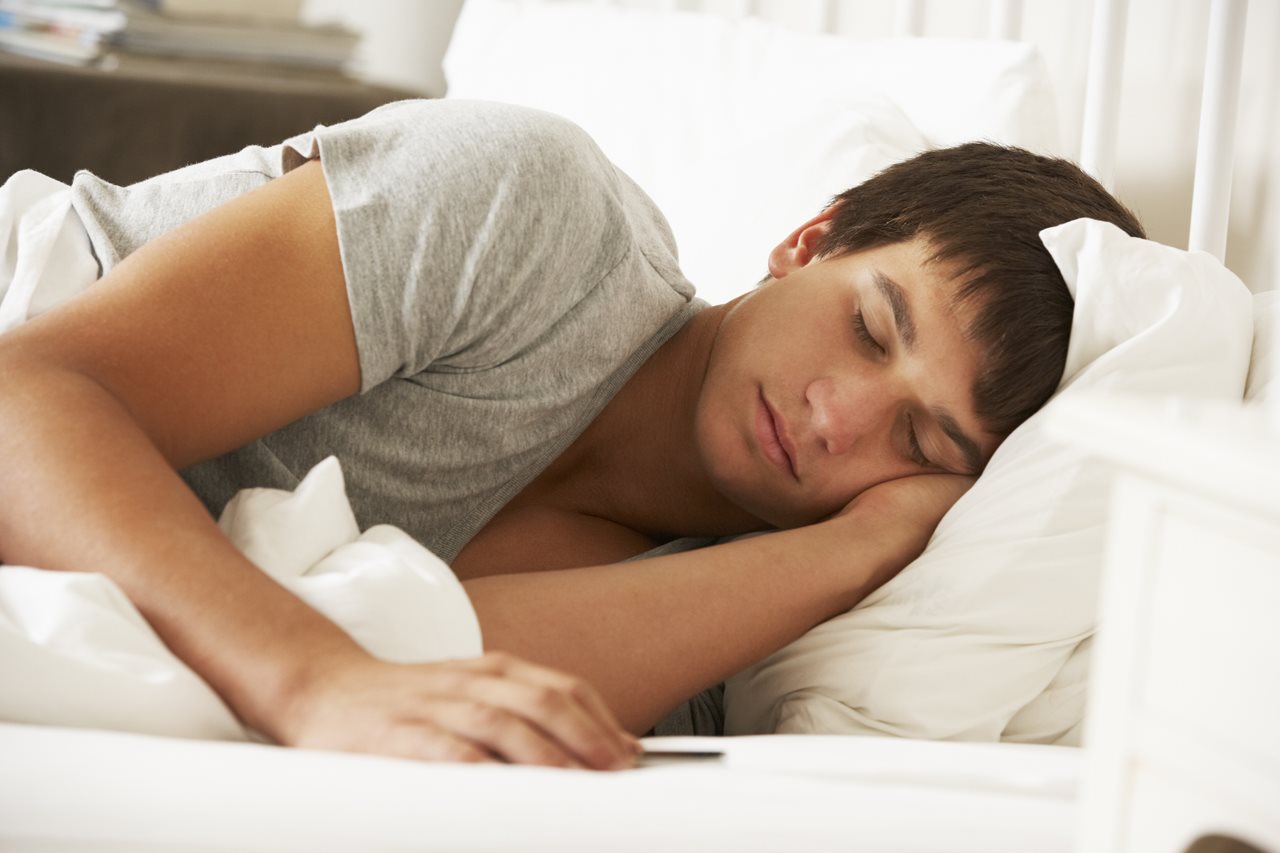(BPT) - The teenage years are a critical period of development to prepare young people to be at their best and thrive in multiple facets of their lives. Getting enough quality sleep plays a big part in teens' health, but teens have unique sleep needs that are different from both children and adults. Teens' body clocks go through natural changes that affect their sleep patterns. Plus, school, social, or work activities can influence if they get enough of the quality sleep they need. In fact, the average American teenager is not their Best Slept Self®. Current sleep health statistics aren't looking great for teens, and that's cause for alarm because of the strong relationship between sleep health and mental health, among other things. The good news is there are small steps for teens to take that can help with both.
The National Sleep Foundation (NSF) is dedicated to improving health and well-being through sleep education and advocacy. NSF's 2024 Sleep in America® Poll, the premier annual review of public attitudes and behaviors about current sleep topics, sought to explore the important connection between sleep health and depressive symptoms among U.S. teens (i.e., people aged 13 to 17).
According to new data from NSF on teen sleep health, 8 out of 10 American teens don't get enough sleep and over 1 in 3 also get an 'F' for practicing healthy sleep behaviors.
Too Much To Do, Too Little Sleep: Link between Teens' Sleep and Mental Health

The mental health of American teens has stepped into the forefront as the Centers for Disease Control and Prevention and Office of the Surgeon General have declared a 'mental health' crisis among American youth. A new NSF survey revealed 1 in 3 teens in America report having mild or greater depressive symptoms. This high number can be linked to numerous contributors, including high stress, social demands, school demands, and even poor sleep health.
Many of the teens polled in NSF's survey believe their sleep and mental health are connected. Nearly 75% said they feel their emotional well-being is negatively impacted when they get less sleep than usual, and nearly 70% of teens who are dissatisfied with their sleep report mild or greater depressive symptoms, as well as loneliness. The report also found that teens who have trouble falling or staying asleep two or more nights a week have significantly more depressive symptoms.
School demands appear to be a particularly important factor for both sleep and mental health in teens. NSF data show 7 out of 10 students start the school day before the NSF-recommended start at 8:30 AM, and that these teens report higher levels of depressive symptoms compared to those who start school later.
Better Sleep Health and Better Mental Health Travel Together in Teens

The good news: NSF's survey on teen sleep and mental health showed a link between getting the NSF-recommended amount of sleep (typically 8-10 hours) on school nights and significantly lower depressive symptoms. The survey also found that nearly 80% of teens who earn a 'B' or higher practicing healthy sleep behaviors are also free of significant depressive symptoms. Together, households, schools, and communities must recognize the positive connection between sleep and a teenager's mental well-being, and the implications for performance in school. Doing so will unlock opportunities for education and a sleep health culture, plus promote the benefits of healthy sleep behaviors.
Tips for Being Your Best Slept Self®

The NSF suggests six small steps for healthy sleep. During the day, it is important to: get bright light, especially in the morning; exercise daily; and eat meals at consistent times day after day. In the evening, it is important to: avoid things like heavy meals, nicotine, caffeine, and alcohol before bed; prioritize sleep with a consistent and relaxing wind-down routine while maintaining a regular sleep schedule; and maintain a sleep-friendly environment - one that is dark, quiet, and cool.
For most teens, the NSF recommended amount of sleep is 8-10 hours with the same sleep and wake times.
Sometimes, even after including healthy sleep behaviors into our routine, we still don't feel like we're getting enough of the quality sleep we need. If you have specific symptoms or continue to be concerned about your sleep after consistently taking some basic steps, it may be a good idea to seek help from a healthcare professional.
For more sleep health information, visit www.theNSF.org.
If you or a loved one are having challenges in mood or feelings of depression, contact the Suicide and Crisis Lifeline by calling or texting 988.
There's only one National Sleep Foundation (NSF). NSF is an independent 501(c)3 nonprofit corporation dedicated to improving health and well-being through sleep education and advocacy. Founded in 1990, the NSF is committed to advancing excellence in sleep health theory, research and practice.
National Sleep Foundation's Sleep Awareness Week® is an annual campaign supported by a range of sponsors and collaborators who help NSF share important and positive sleep health messages. Founded in 1990, the NSF is committed to advancing excellence in sleep health theory, research, and practice.
TheNSF.org ¦ SleepHealthJournal.org














